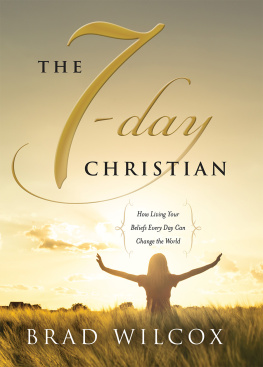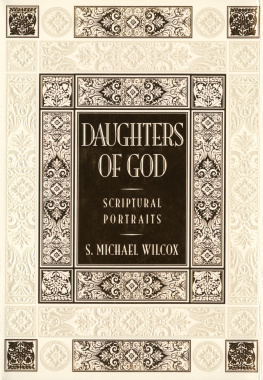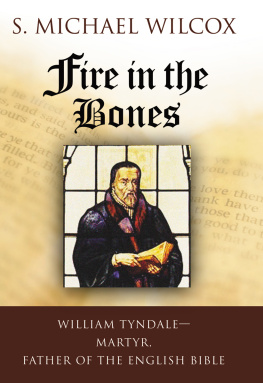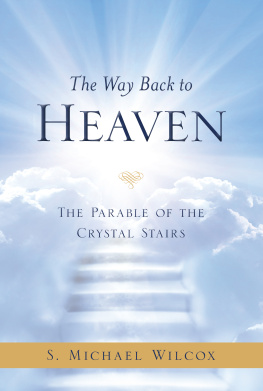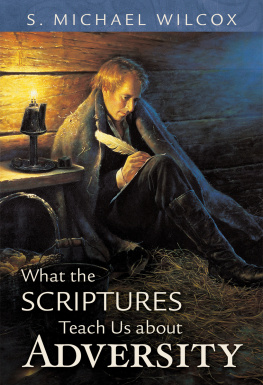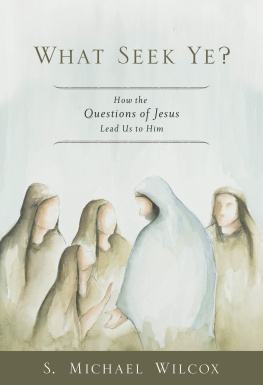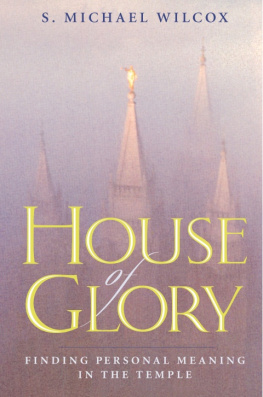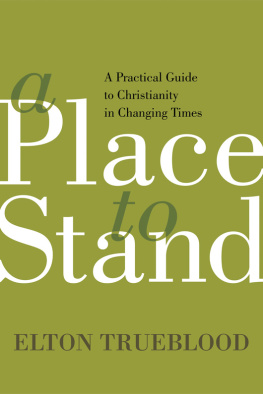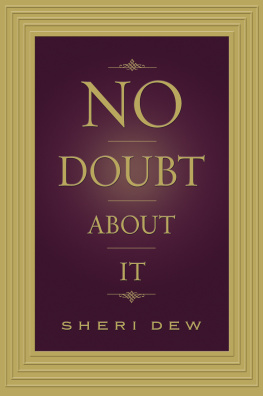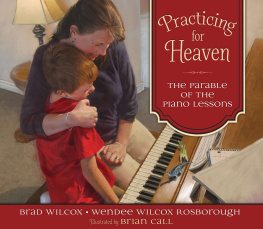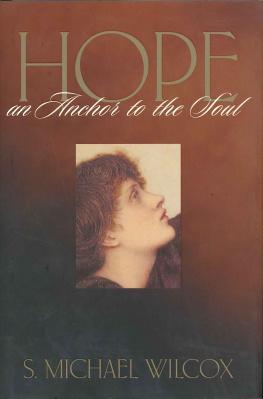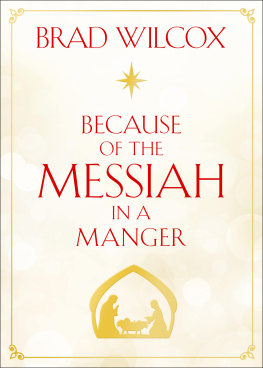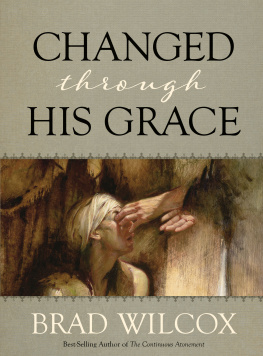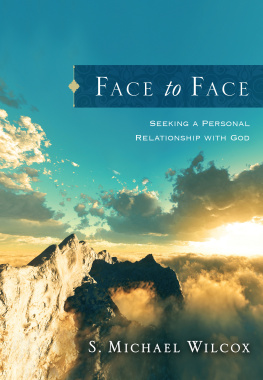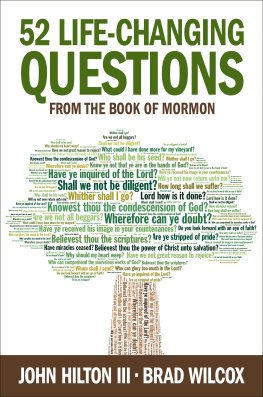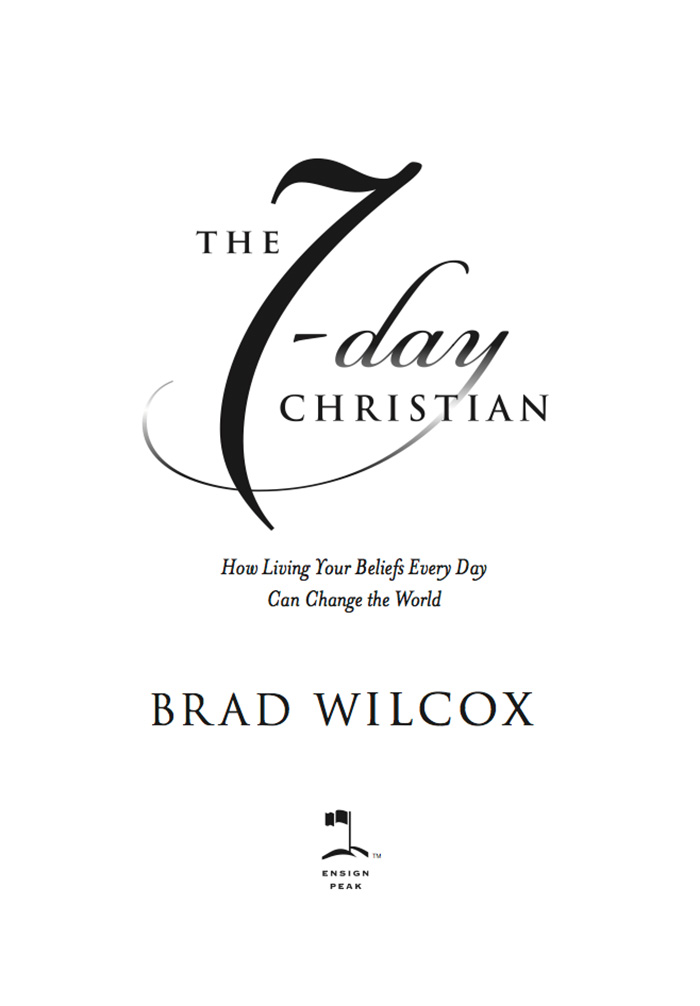2014 Brad Wilcox.
All rights reserved. No part of this book may bereproduced in any form or by any means without permission in writing from thepublisher, Ensign Peak. The views expressed herein arethe responsibility of the author and do not necessarily represent the positionof Ensign Peak.
To my dear friend Ron Riley
truly a 7-day Christian
Library of Congress Cataloging-in-Publication Data
(CIP data on file)
ISBN 978-1-60907-851-5 (hardbound : alk. paper)
Printed in the United States of America
R. R. Donnelley, Crawfordsville, IN
10 9 8 7 6 5 4 3 2 1

ACKNOWLEDGMENTS
This book simply would not have been finished without the help of two friends, Sharon Black and Eula Monroe. Their feedback and input on each chapter made the book much stronger than it would have been. I appreciate their unique perspectives and finely honed skills as writers. Most important, I admire the daily choices they make to live their beliefs with integrity. They are examples to me and all who know them.
Wendee Wilcox Rosborough and David Wilcox, two of my children, were willing to respond to my rough drafts. I am thankful to have their fingerprints throughout the book. As always, I also appreciate my wife, Debi, for her selfless support and love.
Thanks to Chris Schoebinger, who first approached me with the idea for this book and challenged me to stretch beyond my comfort zone. I admire Emily Watts, who has been my talented editor and faithful friend for many years. Additional thanks to Brett C. Sanders, who always believes in me and gives valuable feedback; Sheryl Dickert Smith, who created the cover; and Richard Erickson, the projects art director. My life has also been forever enriched by the Aussie 11 and the Randall familya wonderful team of friends who have been blessed with the opportunities to create some amazing memories together. I love you all.

INTRODUCTION
I grew up in Ethiopia, Africa. When I shared this with the sixth graders I used to teach, they didnt believe me. One girl said, No way! You did not grow up in Ethiopia! I assured her I did. She responded, No way! Youre not skinny enough! All this young lady had ever heard about Ethiopia was that people there were starving, and I certainly didnt look like I qualified!
Throughout the year I shared many memories of Africa with my students. I wanted them to realize that there is more to Ethiopia than the starving children their moms told them about when they didnt want to finish their vegetables. I shared with them Ethiopias long and proud history, the peoples love of music and family, and the happiness that many experience even without the material possessions we enjoy. In Ethiopia I saw the heartbreaking effects of poverty and the incredible value of literacy and education. However, there was one life-changing lesson that I couldnt share in public school: In Ethiopia, I learned what it means to be a Christian.
Many are surprised to discover that Ethiopia is a predominantly Christian country. The Coptic Christian tradition began in the first century in Egypt and spread to Ethiopia. I remember many devoted people who had the Coptic cross tattooed on their foreheads. When I asked my parents about this, they explained that these people marked themselves with the cross to let everyone know they were Christians. I said, Then I want one because I am a Christian too. My parents then taught me that it is not a cross marked on your forehead or worn on a chain around your neck that makes you a Christian. It is what is insidethe way you feel, the way you believe, and the way you livethat indicates your relationship with God. As Mike McKinley wrote, Simply saying that you are a Christian doesnt mean you really are one (Am I Really a Christian? 16).
Many textbooks attribute the early rise of Christianity to Constantine. Earlier Roman leaders had persecuted Christiansespecially Roman converts, who were seen as traitors for going against their own culture. The Roman Empire was divided, unstable, and at war with itself. Constantine wanted to unite the Empire once again. It is said he had a vision in which he was told that he would conquer Rome under the sign of the cross. The leader ordered the symbol of Christ to be placed on the shields of all his soldiers and vowed that if they were victorious, he would become a Christian. They were, and, true to his word, he was baptized.
In reality, Christianity does not owe its survival to Constantine, but to ordinary people like you and me. Christianity spread and flourished not because of a dramatic battle and painted shields, but because of the faithfulness of early converts. These were men and women who believed and lived by their beliefsno matter the cost.
Historians debate whether Constantines conversion was sincere or just politically expedient. Did Christianity become acceptable because he joined, or did he join because it had grown so acceptable? Did Constantine have a vision or simply enough vision to see that he could use this growing movement to his advantage? We may never know. The fact that is beyond debate is this: Everyday Christians living their religion every day changed the world.
The Christian doctrines of charity and hope must have been appealing to people who had spent their lives dealing with the upheavals of war and revolution. Christian promises of the possibility of a bright future for all people, regardless of class or position, must have sounded wonderful to the poor who struggled to feed and shelter their families. But who would have taken time to listen to Christian doctrine without having first noticed the fruits of Christian discipleshipthe high morals, pure motives, self-discipline, and unity within the Christian community? People saw Christians rescue babies from the infanticide so common in the pagan populations. When deadly epidemics wiped out entire communities and the healthy ran in fear, Christians remained to care for the needyincluding those who were not of their faith.
_____________________________

Who would have taken time to listen to Christian doctrine without having first noticed the fruits of Christian discipleshipthe high morals, pure motives, self-discipline, and unity within the Christian community?
_____________________________
Chris and Ted Stewart wrote, Despite the efforts of the pagan emperors to destroy them, [the early Christians] willingness to serve the empire, as well as their reputation for virtue, law-abiding behavior, and strength of character had brought them considerable goodwill (The Miracle of Freedom, 130).
Now lets fast-forward many centuries. As in its early years, Christianity today faces great challenges and opposition. Some Christians are being imprisoned and threatened physically. Some are marginalized and misjudged socially because of their beliefs and the negative perceptions people have of them. In their book UnChristian, David Kinnaman and Gabe Lyons have documented pop cultures alarming perceptions of Christians and the intense hostility such perceptions have generated (38). They wrote, Many young believers say that in some circumstances they are reluctant to admit they are Christians.... They feel that raising the Christian flag would actually undermine their ability to connect with people and to maintain credibility with them (35). Similarly, George Yancey wrote, I have substantiated the reality that religious and political conservatives face a level of rejection that other social groups do not experience (

